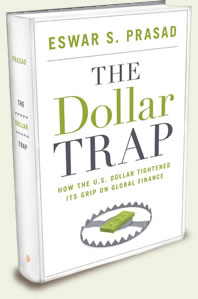Preface
Additionally, many of these countries, as well as some advanced economies like Japan, have been intervening heavily in foreign exchange markets in order to limit appreciation of their currencies, thereby protecting their export competitiveness. Exchange market intervention results in the accumulation of reserves, which need to be parked in safe and liquid assets, generally government bonds. Moreover, at times of global financial turmoil, private investors add to the demand for safe assets.
With its deep financial markets, the U.S. has become the primary global provider of safe assets. Government bonds of many other major economies—such as the euro zone, Japan, and the U.K.—look shakier in the aftermath of the financial crisis, as these economies contend with weak growth prospects and sharply rising debt burdens. As a result, the supply of safe assets has fallen even as the demand for them has surged. Official and private investors around the world have become dependent on financial assets denominated in U.S. dollars, mainly because of the lack of viable alternatives. U.S. Treasury securities, representing borrowing by the U.S. government, are still seen as the safest of financial assets worldwide. Therein lies the genesis of the dollar trap.
Does it make sense for other countries to buy increasing amounts of U.S. public debt, when the amount of that debt is ballooning rapidly and could threaten U.S. fiscal solvency? In Chapter 6, I make the case that foreign investors, especially the central banks of China and other emerging markets, are willing participants in an ostensible con game set up by the U.S. Foreign investors hold about half of the outstanding U.S. federal government debt. The high share of foreign ownership should make it a tempting proposition for the U.S. to cut its debt obligations simply by printing more dollars, thus reducing the value of that debt and implicitly reneging on part of the obligations to its foreign investors. Of course, such an action is unappealing, as it would push up inflation and affect U.S. investors and the U.S. economy as well.
I argue that there is a delicate domestic political equilibrium that makes it rational for foreign investors to retain faith that the U.S. will not inflate away the value of their holdings of Treasury debt. Domestic holders of U.S. debt constitute a powerful political constituency that would inflict a huge political cost on the incumbent government if inflation were to rise sharply. This gives foreign investors some reassurance that the value of their U.S. investments will be protected.

